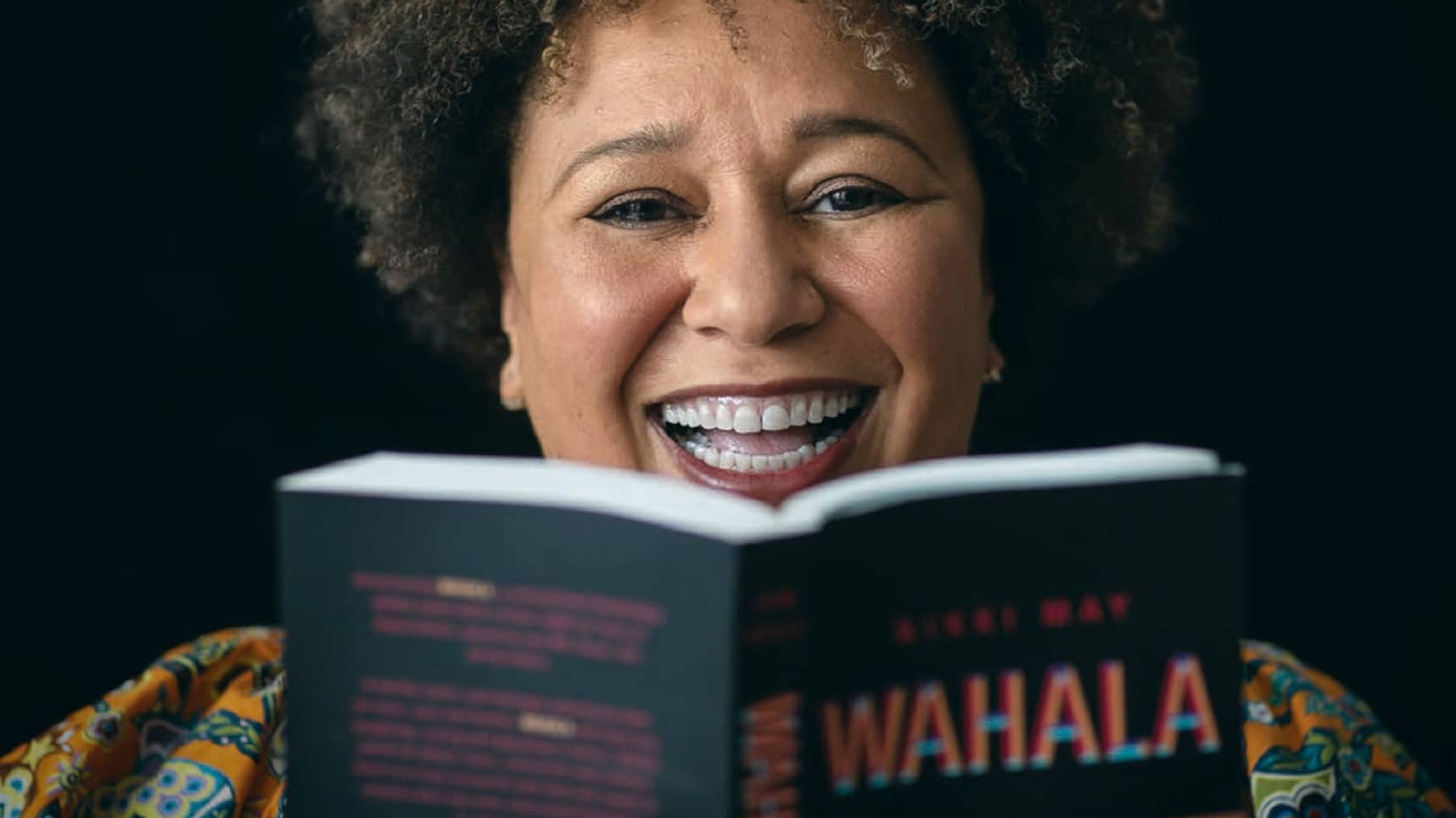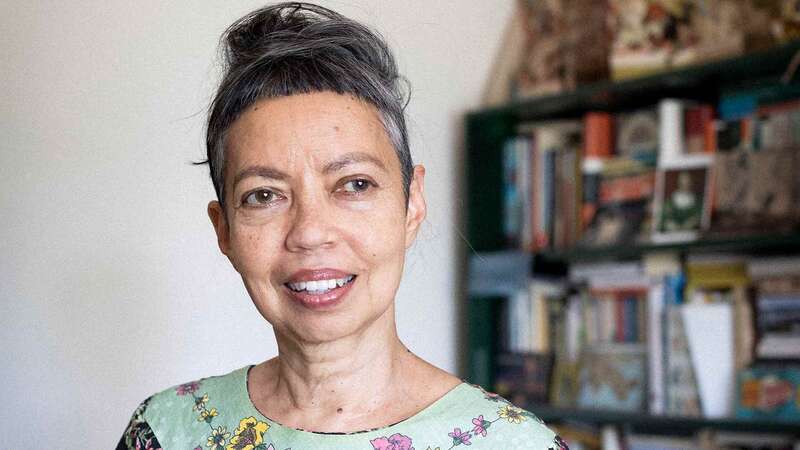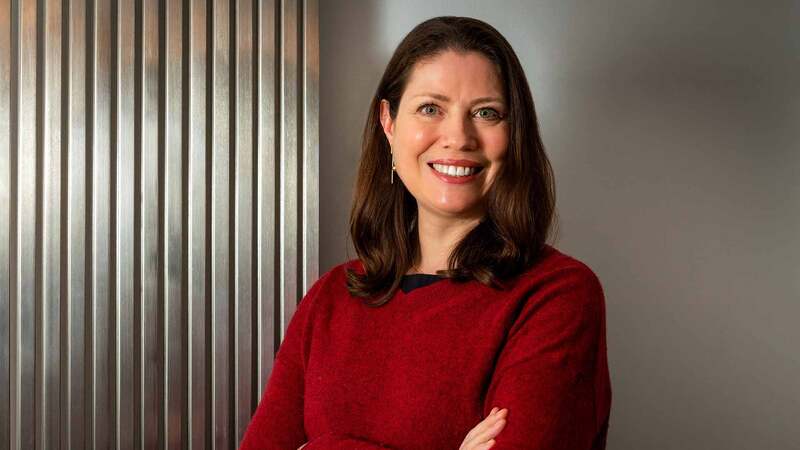You are viewing your 1 free article this month. Login to read more articles.
Nikki May | 'I wanted Wahala to be a celebration of my two cultures'
Nikki May’s début, Walhala, about three friends has already been picked up as a major serial by the BBC
"I am over the moon that my book is actually going to be called Wahala,” says Nikki May, of her wildly entertaining début, acquired by Doubleday after a fierce nine-way auction. “I never thought it would be. In West Africa—the whole of West Africa, not just Nigeria—it’s a word you hear 10 times a day. Someone might say to you, ‘there’s too much wahala’, it’s ubiquitous and it’s always said with a sigh, or a shake of the head, or a groan. It means, basically, trouble.”
Wahala centres on three friends living in London: Ronke, Simi and Boo. The trio, who met as students at Bristol University, all have mixed English and Nigerian heritage in common but, now in their mid-30s, are grap- pling with different issues in their private and professional lives. Ronke wants to buy a flat and settle down with her unreliable boyfriend Kayode; Boo has a French husband and a small daughter but finds domestic life stultifying and is tempted by an office affair; Simi has a high-flying career in fashion, but her husband wants them to have a baby and she’s not keen. At least they have each other. That is, until Isobel arrives on the scene; here is the wahala of the title.
Often when you are mixed race, other people decide how you are going to be identified. So you’re either too Black, or not Black enough, too white or not white enough
A glamorous “old friend” of Simi’s—they met aged five at school in Lagos—Isobel gets back in touch and loses no time in ingratiating herself with the group. Each chapter tells the story from the point of view of Ronke, Simi and Boo in turn. While Ronke is less amenable to Isobel’s charms, Simi and Boo embrace this dazzling newcomer with her definite opinions on what they should be doing with their lives. The novel doesn’t shy away from complexities of female friendship. May explains that she wanted to explore how “friendship can be really messy and complicated, and women can be quite bitchy. You can be horrible about the people you love and still love them. I liked that idea that although these three friends absolutely love each other, how easy it can be for a catalyst to come in and upset the applecart.”
Isobel proves to be adept at being all things to all people: a cheerleader, a shoulder to cry on, a stylist, whatever is needed at that moment. Her power comes from identifying the weak points of the others. Women, says May, are complicated people. “We have so many things pulling at us and pushing at us. Demands on how we should look or how we should feel or whether we should have children or not, or what we should do with our career. I think if you add in being mixed race and look at it refracted through that lens of not necessarily belonging, I think we become even more complicated. So, I honestly think it’s possible for someone to come in and know what strings to pull.” Exactly what Isobel’s motive is for infiltrating the group propels the narrative, all the way to the twist at the end.
Mouthwatering descriptions
May explains that she had always “really wanted to read a book that had people like me in it, people like my friends...we are mixed race, we’re middle class, we’re quite successful.” The story unfolds against the backdrop of contemporary London, from noisy Nigerian restaurants to gleaming champagne bars. Food is very important in the novel which is full of some mouthwatering descriptions, from jollof rice to moin-moin. “Culturally in Nigeria, food is hugely important. It’s a social thing, it’s a way of caring about people. We have a saying in Yoruba, in the south where I come from, if anybody walks in when you’re eating, you say ‘E wa jeun’ which means come and eat.”
May was also interested in exploring “how three people have experienced the same racial background so differently.” Ronke has a “rose-tinted view of Nigeria” whereas Simi is more ambivalent. Simi also has an awful boss who goes on about her “urban” vibe, despite Simi’s love of Scandinavian minimalism. May observes: “Often when you are mixed race, other people decide how you are going to be identified. So you’re either too Black, or not Black enough, too white or not white enough. You often feel that you have to turn your back on one side of you, which is wrong. Why should we? I should be able to like pounded yam and mashed potato.” Later, she adds: “I wanted Wahala to be a celebration of my two cultures... Sometimes my sense of belonging is concrete, other times it’s elusive, but all in all, I got the long straw, two homes is twice the joy."
May was born in Bristol where her parents met and married; her Nigerian father was studying at medical school and her English mother was at art college. The family moved to Lagos when May was two. May grew up in Lagos vaguely assuming that she too would become a doctor but two years into her medical degree she realised “that I would make the most appalling doctor. I had no empathy and I didn’t really care.” So she dropped out and “ran away” to London aged 20—“I did break my dad’s heart but he’s over it now”.
She signed up with a temp agency, initially taking any job that came along, until a fortuitous six-week placement at an advertising agency. “I absolutely loved it,” she recalls. “There was a lot of luck involved, one day a client phoned and wanted something and instead of writing a note I got it sorted.” This led to a permanent job offer, and just six years after that May founded her own advertising agency, later moving out of London to Dorset with her husband, in search of a slower pace of life.
Source of inspiration
The inspiration for Wahala came after a long lunch at a Nigerian restaurant with friends in London. On the slow train back to Dorset, May starting thinking about her two cultures—“I felt like I’d come out of this Nigerian restaurant and code-switched back into my English self”—and had written the first chapter before she arrived at her stop. After a short online course with Curtis Brown, she wrote a first draft in nine months. Rereading it after a break, she knew that although she had “fallen in love with the characters; I was literally dreaming about them”, the plot wasn’t quite there. “I realised it needed lots of wahala, it needed a lot of trouble thrown at it!”
Submitting to various small prizes gave her the confidence to start submitting to agents, at which point things started to move very fast: “Within three hours of sending out the query I had a request for the full [manuscript], and within three days I had six offers.” This was February 2020 just before lockdown, so May was able to travel to London and meet each agent in person. She chose the Madeleine Milburn Agency which also sold US rights to HarperCollins Custom House in a seven-figure deal. Wahala will also be a major TV serial for the BBC, adapted by the BAFTA-nominated screen- writer Theresa Ikoko.
“What I really wanted to do was write a book that was fun to read. I knew it would touch on issues as it’s almost impossible to have mixed race characters in your book and not touch on race, colourism, or class. But I really wanted to not bang people on the head with ‘here’s something you should learn’ or ‘here’s another issue’: I wanted it to be fun.”
Book extract
Pounded yam and egusi? Eba with okra? No, it had to be pounded yam. But maybe with efo riro. Ronke ran through the menu in her head as she walked up the hill to Buka. She knew it by heart but that didn’t make choosing any easier. As usual she wanted it all.
And as usual she was running late. She stopped at the cashpoint anyway and withdrew a hundred pounds. The girls teased her, told her it was an urban myth, but ever since Ronke had heard the story about Simi’s cousin’s friend getting her card cloned at Buka, she’d paid in cash.
Ronke had been looking forward to their Naija lunch all week. And not just because of the food. For the first time in ages, when Simi asked, ‘So what’s new?’, the answer wouldn’t be, ‘Nothing.’
She hustled past the Sainsbury’s Local, the Turkish grocery and the Thai nail bar. The Nigerian flag outside Buka was looking a little tatty, frayed at the edges. The green was still vibrant but the white was a dirty beige. Ronke studied her reflection in the shiny mirrored door, yanked at her hair to fluff up some of the curls, patted to flatten some down. As good as it gets. At least once a day someone said to her, ‘I wish I had curly hair,’ but Ronke knew better— curls meant frizz, knots and chaos.










